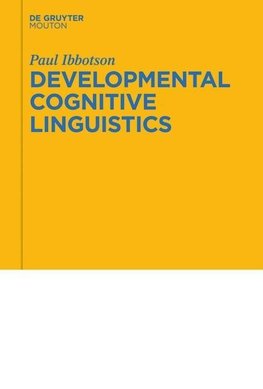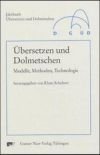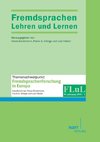
Developmental Cognitive Linguistics
It would be surprising indeed if we were to find that the principles governing [linguistic] phenomena are operative in other cognitive systems, although there might be a certain loose analogies, perhaps in terms of figure and ground, or properties of... Viac o knihe
Produkt je dočasne nedostupný
87.96 €
bežná cena: 99.95 €
O knihe
It would be surprising indeed if we were to find that the principles governing [linguistic] phenomena are operative in other cognitive systems, although there might be a certain loose analogies, perhaps in terms of figure and ground, or properties of memory, as we see when relevant principles are made explicit. Such examples illustrate...that there is good reason to suppose that the functioning of the language faculty is guided by special principles specific to this domain..." (Chomsky, 1980, p. 44).
It has taken nearly 40 years of research to reveal how this influential statement profoundly underestimated the interconnectivity of language with other cognitive systems. For the first time, this book presents a synthesis of studies which have all shown that the developmental trajectory of language is in some important sense contingent on the development of other non-linguistic abilities. The central thesis of this book follows from that research: Language is constructed out of usage events using species-general cognitive mechanisms (e.g., categorization, inhibition, memory, attention) and constrained by a species-unique set of social skills (e.g., communicative intention-reading, cultural learning). For usage-based theories the complexity of language emerges not as a result of a language-specific instinct but through the interaction of cognition and use. (Langacker, 1987, 1991; Croft, 1991; Givoìn, 1995; Tomasello, 2003; Goldberg, 2006; Bybee, 2010). These broad assumptions are in contrast with those of the generativist and structural traditions who analyze language as a self-contained system, and autonomous from the cognitive and social matrix of language use. When we take the dev-cog-ling approach, the degrees of freedom on what generalisations are plausible are massively reduced to such an extent that the traditional, rationalist approach to framing the problem of induction begins to look fundamentally ill posed
- Vydavateľstvo: de Gruyter Mouton
- Formát: Hardback
- Jazyk:
- ISBN: 9783110644418



 Anglický jazyk
Anglický jazyk 
 Nemecký jazyk
Nemecký jazyk 

 Ruský jazyk
Ruský jazyk 



